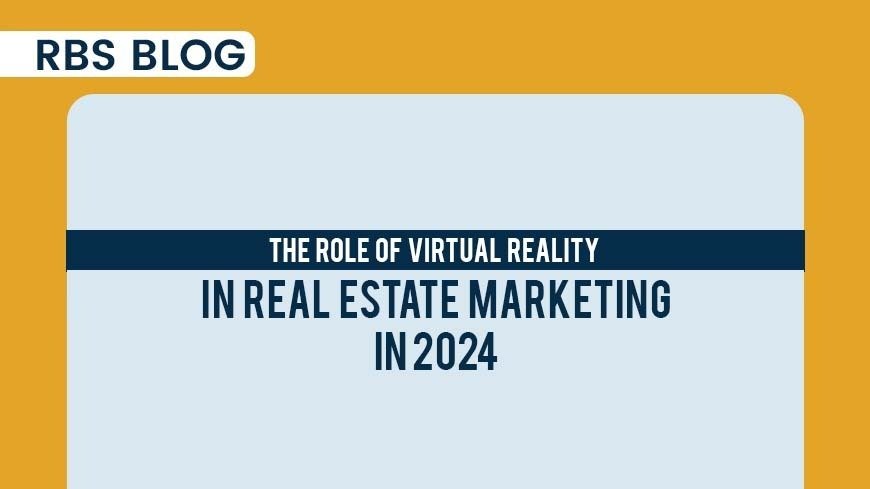- September 9, 2024
- Posted by: Muhammad Shehzad
- Category: Blogs

2024 is the era of technological advancement, and the real estate sector is no different from other sectors. Augmented reality and Virtual Reality (VR) have changed the real estate marketing game. VR provides potential property buyers with an immersive experience like never before. It further allows marketers to showcase their property interactively. Let’s explore the role of virtual reality in Real Estate marketing in 2024.
How can virtual reality technologies be used in the real estate sector?
Buying a property is time-consuming; if you have ever been into real estate, you would know how stressful the process is. You look into property listings online or physically and then shortlist the properties to visit. It costs money and time. Here is when VR jumps in, takes all the fuss, and adds tremendous value. VR transports potential buyers virtually into the property you are marketing. They can navigate the property to explore the details and save valuable time.
Secondly, realtors can stage an under-construction property and do advance marketing to attract clients before the construction is even completed. Developers can visualize the property beforehand and make the essential changes or improve designs using augmented reality. This reduces the cost of testing factors in the real estate business.
Moreover, imagine how exciting it is to visit model houses; buyers immediately connect with the property. Virtual reality gives that excitement level to its users and creates an emotional bond between the buyer and the property.
Importance of Using Virtual Reality in Real Estate Marketing in 2024
-
Virtual Staging
Virtual staging is magic created by VR. It enables marketers to stage an empty property to attract potential buyers. VR makes Everything possible, from changing the paint colors to adding beautiful furniture and interiors.
-
Guided Tours
You can get a 3D walk-through tour of the property you are interested in while sitting on your couch. There is no more fussing about planning meetings with real estate agents and the bare expenses of fuel and wasted energy visiting sites.
-
Saves Time & Cost
Minus the in-person property visits in real estate, a lot of time is saved, benefitting both buyers and sellers. Besides, you can virtually visit the property from anywhere in the world. House hunting is no longer an issue for overseas people.
-
Better Reach and Wider Audience
VR makes it easier for marketers to reach a wider audience. Whether an international buyer or a person living in another city, he can easily visit the property and decide. Your property is accessible to anyone who has an internet connection.
-
Boosts Sales of Under-construction Property
With VR, you don’t have to wait to market your property until it’s finished. You can use VR models and prototypes to give potential clients a clear idea of the final look of the property. Besides, you can highlight your property’s salient features and stage it to attract potential parties.
Also Read: Benefits of Owning a Villa in Capital Smart City
Benefits of Using Virtual Reality
- Better understanding of the space and its surroundings
- Virtual staging enables marketers to enhance the overall appeal of the property
- Buyers get emotionally attached to the interesting property and can easily visualize their presence there.
- Enhanced real-time collaborations and feedback.
Challenges and Limitations
With so many benefits, VR also has some limitations. Here are the possible challenges and limitations;
- VR is costly for independent agents and small agencies.
- VR’s consumer adoption varies according to technological literacy and demographic factors.
Future Prospects and Implications
The real estate sector has adopted VR technology and is embracing its potential to be the best. Though the initial cost and adoption of technology might seem difficult, the overall benefits in the long run will ensure no turning back. As technology evolves, the real estate sector is becoming more equipped and tech-literate to stay ahead of the competition.
The future of VR is bright in the real estate sector, and you can make your firm’s future brighter by integrating virtual reality into your business. Seek assistance from professionals and jump into an improved and advanced marketing game.
